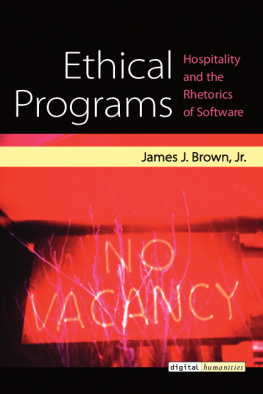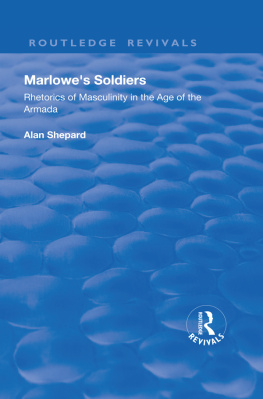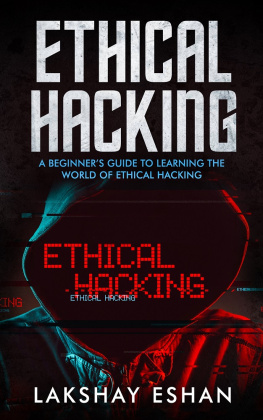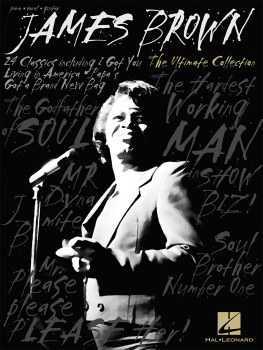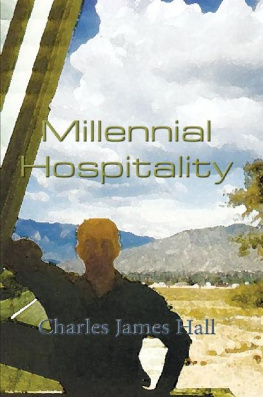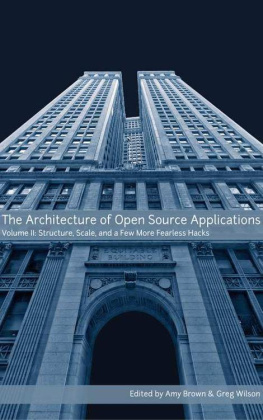James J. Brown Jr. - Ethical Programs: Hospitality and the Rhetorics of Software
Here you can read online James J. Brown Jr. - Ethical Programs: Hospitality and the Rhetorics of Software full text of the book (entire story) in english for free. Download pdf and epub, get meaning, cover and reviews about this ebook. year: 2018, publisher: The University of Michigan Press, genre: Romance novel. Description of the work, (preface) as well as reviews are available. Best literature library LitArk.com created for fans of good reading and offers a wide selection of genres:
Romance novel
Science fiction
Adventure
Detective
Science
History
Home and family
Prose
Art
Politics
Computer
Non-fiction
Religion
Business
Children
Humor
Choose a favorite category and find really read worthwhile books. Enjoy immersion in the world of imagination, feel the emotions of the characters or learn something new for yourself, make an fascinating discovery.
- Book:Ethical Programs: Hospitality and the Rhetorics of Software
- Author:
- Publisher:The University of Michigan Press
- Genre:
- Year:2018
- Rating:3 / 5
- Favourites:Add to favourites
- Your mark:
- 60
- 1
- 2
- 3
- 4
- 5
Ethical Programs: Hospitality and the Rhetorics of Software: summary, description and annotation
We offer to read an annotation, description, summary or preface (depends on what the author of the book "Ethical Programs: Hospitality and the Rhetorics of Software" wrote himself). If you haven't found the necessary information about the book — write in the comments, we will try to find it.
Ethical Programs: Hospitality and the Rhetorics of Software — read online for free the complete book (whole text) full work
Below is the text of the book, divided by pages. System saving the place of the last page read, allows you to conveniently read the book "Ethical Programs: Hospitality and the Rhetorics of Software" online for free, without having to search again every time where you left off. Put a bookmark, and you can go to the page where you finished reading at any time.
Font size:
Interval:
Bookmark:

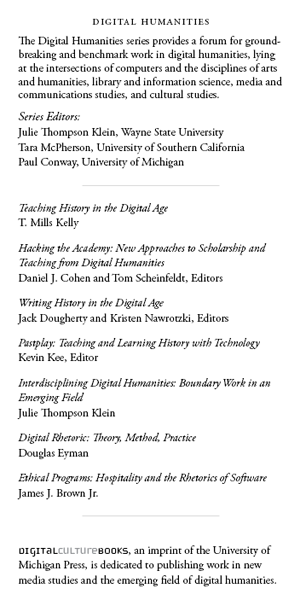 Page ii Page iii
Page ii Page iii Hospitality and the Rhetorics of Software
James J. Brown Jr.
University of Michigan Press
Ann Arbor
Copyright James J. Brown Jr. 2015
Some rights reserved

This work is licensed under the Creative Commons Attribution-Noncommercial-No Derivative Works 3.0 United States License. To view a copy of this license, visit http://creativecommons.org/licenses/by-nc-nd/3.0/ or send a letter to Creative Commons, 171 Second Street, Suite 300, San Francisco, California, 94105, USA.
Published in the United States of America by the
University of Michigan Press
Manufactured in the United States of America
2018 2017 2016 2015 4 3 2 1
A CIP catalog record for this book is available from the British Library.
DOI: http://dx.doi.org/10.3998/dh.13474172.0001.001
ISBN 978-0-472-07273-6 (hardcover : alk. paper)
ISBN 978-0-472-05273-8 (cloth : alk. paper)
ISBN 978-0-472-12123-6 (e-book)
For Jillian and Linus and our illuminated vacancy signs
Page vi Page viiIn a book that addresses hospitality, an acknowledgments section is an interesting thing to write. Acknowledging all of those who had a hand in this project points directly to the impossibility of a pure, absolute hospitality. While I will do my best to welcome all of the guests who reside in these pages, I know I will have inadvertently overlooked someone. I apologize for this, knowing that there is no way to fully thank all of those who helped in the writing and revision of Ethical Programs.
The biggest turning point in this project happened when Jillian Sayre pointed me to Jacques Derridas Of Hospitality, a text that became the foundation for the arguments that unfold in the following chapters. I did not know at the time that Jillian would become so much more than a collaborator, colleague, and reader of sloppy drafts. As important as Derridas work on hospitality has been for my thinking of software and networked life, Jillians impression on this book and on me is not traceable to any single moment or text. She is everywhere in these pages and in everything else that I have written or will write.
Diane Davis has been both mentor and friend, and from the moment I first attended her seminar on rhetorical agency in the fall of 2004, she has transformed the way I read, write, and think. She is the most hospitable of readers, and this was especially true while she read early drafts of this project. In many ways, Diane has rescued the readers of this book, ensuring that they dont have to endure some of the raw thinking that she helped to cook.
The early stages of this project happened at the University of Texas at Austin, and I want to think my friends and colleagues from the UT PhD program for discussing these ideas in seminars and at backyard cookouts, especially Molly Hardy, Matt King, Anthony Matteo, Nate Kreuter, Tony Fassi, John Jones, Aaron Zacks, Jeremy Dean, Jim Warren, Doug Freeman, Kathryn Hamilton, Andrew Busch, Renee Searfoss, Patty Burns, Stephanie Odom, Sean McCarthy, Rachel Schneider, Jan Fernheimer, Bill Wolff, Brooke Hunter, Rodney Herring, Jodi Relyea, Justin Tremel, Chris Chung, Will Burdette, Tim Turner, Erin Hurt, Anthony Arroyo, Jill Anderson, and Catherine Bacon. I am also indebted to the faculty at the University of Texas in the English Department, the Page viii Department of Rhetoric and Writing, and the Communications Studies Department, especially Trish Roberts-Miller, Clay Spinuzzi, Jeff Walker, Mark Longaker, Peg Syverson, Linda Ferreira-Buckley, Davida Charney, Jackie Henkel, Josh Gunn, Barry Brummett, and Martin Kevorkian.
I would also like to thank the faculty and graduate students in the Carnegie Mellon University English Department, where I began to first see that I did not need to leave behind my previous life as a circuit designer at MCI as I entered the world of English studies. In particular, I want to thank Alison Dwyer, Katy June-Friesen, John Newton, Jennifer Pellecchia, Sharmila Venkatasubban, and Mandy Hearne.
This book would not have been possible without the valuable insights of students at Wayne State University and the University of Wisconsin-Madison. In particular, the students in New Media Interfaces and Infrastructures at both universities helped me map the terrain of software studies and its links to research in rhetorical theory. I am especially grateful to those students with whom I authored an article in Pedagogy regarding software studies and writing pedagogy: Andrew Engel, Whitney Hardin, Donora Hillard, Jason Kahler, Michael McGinnis, Derek Risse, and Conor Shaw-Draves. I would also like to thank a number of other students: Becca Tarsa, whose work has continually helped me see the links between traditional writing pedagogy and emerging digital tools; Anna Muenchrath, who helped with copy editing and references and also helped to clarify some of the more opaque moments in the manuscript; Stephanie Larson, whose work with me on the Making Machines project was important in helping me refine arguments in chapter 5; Deidre Stuffer, whose efforts as a teaching assistant in my Composition and Computation course pushed me and my students to think differently about the relationship between computer programming and writing; Eric Alexander, who provided the insights and expertise of a computer scientist and always kept me honest.
Katherine Hayles pointed me toward work in software studies at an early stage, which completely transformed the method and trajectory of the project. Richard Grusin read early drafts of the manuscript and was instrumental in helping me develop the concept of ethical programs. Annette Vee not only read and responded to the manuscript but has also collaborated with me on a number of projects that would never have emerged without her insights on the relationships between writing, rhetoric, and procedural literacy. Byron Hawk also read drafts of this project and helped compose the title to this book. Collin Brooke had a profound impact on this manuscript, especially chapter 5. Christa Olson and Kate Vieira were especially helpful as I wrote the conclusion, and their comments in our writing group never failed to help clarify and flesh out arguments. Both Jeff Pruchnic and Richard Marback challenged me Page ix to clarify my thinking at the very early stages of the project (while also introducing me to the best beer Michigan has to offer). Cynthia Haynes taught me early on in my graduate career how to weave together theory and analysis, and I hope Ive carried those lessons into this project. Robert Emmons worked his magic to ensure that the figures in this book look fantastic, but more importantly he has been the inspiration behind so many amazing projects at the Rutgers-Camden Digital Studies Center.
Many others also either read drafts or helped me work through ideas and concepts, especially Jeff Rice, Casey Boyle, Nathaniel Rivers, Jenny Rice, Kevin Brock, Derek Mueller, Thomas Rickert, Debra Hawhee, David Rieder, Liz Losh, Mark Sample, Mark Marino, Stephanie Boluk, Steven LeMieux, Patrick LeMieux, Scott Richmond, Patrick Jagoda, Matthew K. Gold, Dale Smith, Matthew Kirschenbaum, Ron Brooks, Rosa Eberly, Morris Young, Mike Bernard-Donals, Brad Hughes, Matthew Berland, Krista Kennedy, Quinn Warnick, Tim Lockridge, Jentery Sayers, Zach Whalen, Anne Wysocki, Chris Lindgren, and Kyle Jensen.
Font size:
Interval:
Bookmark:
Similar books «Ethical Programs: Hospitality and the Rhetorics of Software»
Look at similar books to Ethical Programs: Hospitality and the Rhetorics of Software. We have selected literature similar in name and meaning in the hope of providing readers with more options to find new, interesting, not yet read works.
Discussion, reviews of the book Ethical Programs: Hospitality and the Rhetorics of Software and just readers' own opinions. Leave your comments, write what you think about the work, its meaning or the main characters. Specify what exactly you liked and what you didn't like, and why you think so.

